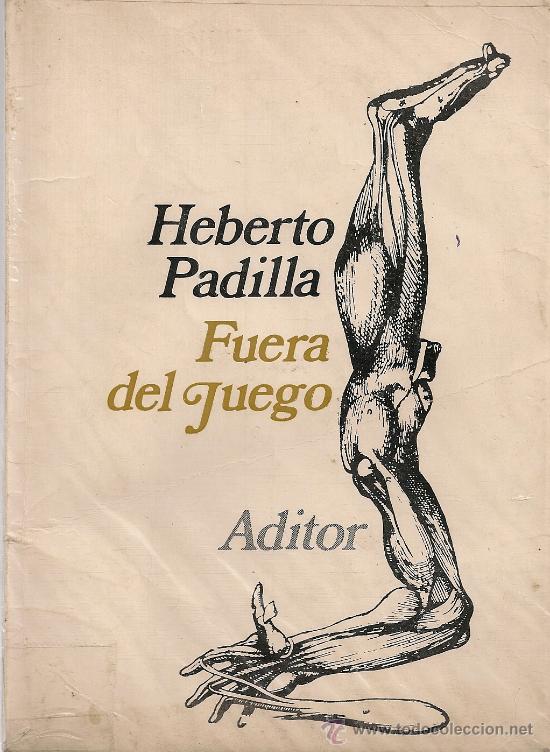4.1.3.4.2 “Out of the Game”, a collection of poems published by Heberto Padilla in 1971

“Fuera del juego” (Out of the Game), besides constituting the point of the political shift made by Heberto Padilla in the sixties, also has important lyrical merits that break with the tone of the revolutionary praise, although important in purpose, worn out by the reiteration of formulas and clichés and the excessive political-social emphasis, although Padilla changed its tone without abandoning it completely.
The text received the UNEAC Poetry Prize, awarded unanimously by a jury that included José Lezama Lima and José Z. Tallet, which sparked a great deal of controversy given the non-revolutionary nature of some verses, which was even specified in the prologue at the request of members of the Union, although the lyrical spirit ultimately prevailed over the political given the fact that the text was published.
This collection of poems contains an intimate musicality that oscillates between the intimate and the decidedly social. Colloquialism prevails here, and the poet practically sheds the neo-romantic influences that had been fading away over the course of successive pages, anchoring it in reality, albeit from a critical stance.
One of the most anthologized texts in the notebook is titled “In Difficult Times,” which illustrates his feelings regarding the demands of the revolutionary process, in a sense, the danger of individual identity dissolving in an overly monolithic and all-encompassing collective march. This was a reaction shared by other intellectuals, valid for its authenticity and the aesthetics of its expression, beyond its truth, so difficult to elucidate. These verses are transcribed in full:
“That man was asked for his time
to bring it together at the time of History.
They asked for her hands,
because for a difficult time
There’s nothing better than a pair of good hands.
They asked for his eyes
who once had tears
so that he could contemplate the bright side
(especially the bright side of life)
because for horror, one eye of astonishment is enough.
They asked for his lips
dried and cracked to affirm,
to build, with each statement, a dream
(the-high-dream);
they asked for his legs,
hard and knobby,
(his old wandering legs)
because in difficult times
anything better than a pair of legs
for construction or trench?
They asked him for the forest that nourished him as a child,
with its obedient tree.
They asked for his chest, his heart, his shoulders.
They told him
that this was strictly necessary.
They explained to him later
that all this donation would be useless
without giving up the language,
because in difficult times
nothing is as useful to stop hatred or lies.
And finally they begged him
that, please, he would start walking,
because in difficult times
“This is, without a doubt, the decisive test.”
This collection of poems is key to understanding and developing emotional empathy with the poet Heberto, who would suffer profound contradictions in his perception of Cuban reality. Although he always showed himself to be a lover of the homeland where he was born, these contradictions, however, were not only his own, but defined part of his generation and, to a certain extent, the political and cultural gains and errors that the process undertaken in Cuba from 1959 onwards entailed.








